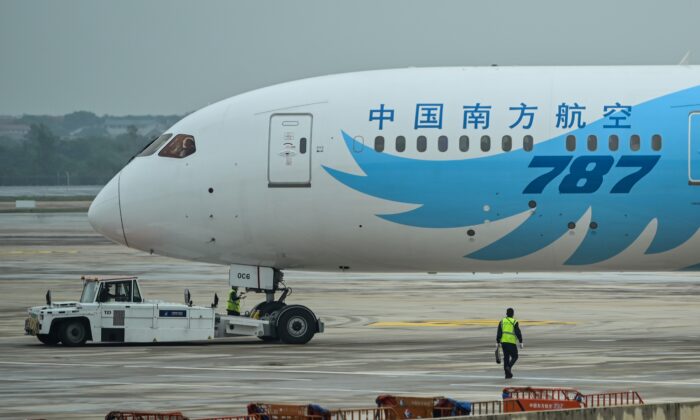The Trump administration said June 5 it will let Chinese airlines operate a limited number of flights to the United States, easing off from an earlier threat to ban the flights.
The decision came one day after China appeared to open the door to U.S. carriers United Airlines and Delta Air Lines resuming one flight per week each into the country.
The Transportation Department said it will let Chinese passenger airlines fly a combined total of two round-trip flights per week between the United States and China, matching the number of flights that China’s aviation authority will allow for U.S. carriers.
United and Delta did not comment immediately on the latest development in the dispute between the two countries and how it will affect their plans. Both had hoped to offer more flights.
The dispute between Washington and Beijing over airline service has been building for weeks and is part of broader trade and diplomatic tension between the world’s two biggest economies.
In early January, there were more than 300 flights per week between the two countries, but international carriers reduced and then stopped flying to China as the CCP (Chinese Communist Party) virus pandemic devastated demand for air travel. United, Delta, and American Airlines suspended flights to China before mid-March.
Chinese airlines reduced but didn’t eliminate their flights to the United States. They ran about 20 flights per week in February, and 34 by mid-March. Air China, China Eastern Airlines, China Southern Airlines, and Xiamen Airlines continue flying those routes.
Travel in both China and the United States has partly recovered in the past two months, although it remains far below 2019 levels. In May, United and Delta petitioned China to resume flights there, but received no response.
The Trump administration protested that China’s refusal to grant access to U.S. airlines was unfair. The Transportation Department announced Wednesday that it would prohibit all passenger airline flights from China no later than June 16.
On Thursday, the Civil Aviation Administration of China said it would let more foreign airlines fly to China starting next week as anti-CCP virus controls are eased.
The order did not identify airlines, but appeared to limit United and Delta to one flight per week because they stopped flying to China before mid-March. American does not plan to return to China before October.
By David Koenig,聽
The Associate Press and Epoch Times staff contributed to this report.
Focus News: US Will Allow Limited Flights by Chinese Airlines, Not a Ban
